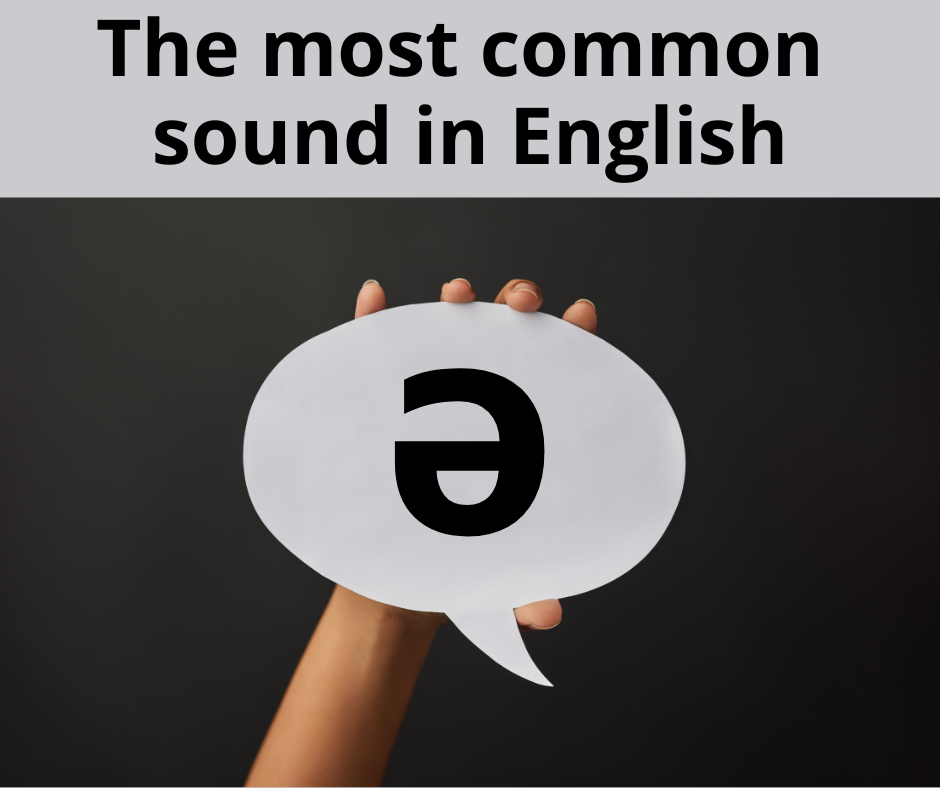
In this podcast, you’ll learn about the schwa.
What does the schwa sound like? Where does it appear in spoken English and is it a good idea to learn it? We’ll answer these questions, and more, in this podcast episode.
The schwa sound
The schwa sound /ə/ is one of the most common vowel sounds in English and is often referred to as the “neutral” or “lazy” vowel.
The IPA symbol for the schwa sound looks like an upside-down ‘e’. You can see examples in the show notes. If you know the symbol, it will help you to identify the schwa sound in a dictionary.
The schwa sound appears approximately once in every three vowel sounds a native British English speaker makes.
How to make the schwa sound
Relax your jaw, tongue and lips.
It’s an effortless sound.
It’s a lazy sound. If you try too hard to make it, it may not sound right.
It’s like the vowel sound in words like nurse, turn, learn and burn – but shorter.
/ə/
a/ə/ pen, a/ə/ book
sofə

Here are some examples:
Reduced vowels: The schwa sound often occurs in unstressed syllables, where vowels are reduced. Examples include the schwa sound in “about” (/əˈbaʊt/), “animal” (/ˈænɪməl/), and “support” (/səˈpɔːrt/).
I’ll get there about 7. – I’ll get there əbout 7.
You’re an animal. – You’re ən animəl.
Thanks for your support. – Thanks fə yə səpport.
Unstressed syllables: The schwa sound can be found in unstressed syllables within longer words, like “photograph” (/ˈfoʊtəˌɡræf/), “adventure” (/ədˈvɛntʃər/), and “syllable” (/ˈsɪləbəl/).
The schwa is never on the stressed syllable of a word:
Machine – məCHINE
Soldier – SOLDə(r) – /r/ sound for Irish, Scottish and North Americans
Culture – CULTə(r)
Holiday – HOLəday
Corrupt – cəRRUPT
Visitor – VISITə(r)
Congratulations – cəngratuLAtəns
Function words: Schwa is commonly used in function words such as “the” (/ðə/), “to” (/tə/), “of” (/əv/), “for” (/fə /), ���can” (cən), “some” (səm) and “a” (/ə/).
Let’s go to the pub for a beer. – Let’s go tə thə pub fərə beer.
Can you help me? – Cən yə help me?
I’ve got some questions. – I’ve got səm questəns.
A cup of tea. – ə cəpə tea.
Connectors: Schwa can be found in connectors like “and” (/ænd/), “but” (/bət/), and “or” (/ɔːr/).
Fish and chips – fish_ən chips
I don’t but he does. – I don’t bət he does.
Tea or coffee? – Tea ə coffee?
At the end of a word: The schwa sound can appear in verb endings such as “-en” (/ən/) as in “happen” (/ˈhæpən/) and “-er” (/ər/) as in “teacher” (/ˈtiːtʃər/).
Suffixes: Schwa can be present in suffixes such as “-al” (/əl/) in words like “universal” (/ˌjuːnɪˈvɜːrsəl/) and “-able” (/əbəl/) in words like “comfortable” (/ˈkʌmftərəbəl/).
Words ending in -ion and -ian have a schwa sound:
Politician
Musician
Correction
Discussion
Confusion
Also, in words ending in -ous:
Dangerous
Nervous
Anxious
Fabulous
Marvelous
More examples: “banana” (/bəˈnænəz/), and “umbrella” (/əmˈbrɛləz/).
Can I have a banana? – Cən_I havə bənanə?
When a word ends in a schwa sound and the following word begins with any vowel sound, most English people will join the words with an added /r/ sound. The Scots, Irish and North Americans ALWAYS pronounce the r at the end of words, to varying degrees, whether they are followed by another word or not.
mother_and son
the bitter_end
Further_away
The butcher_opens at 9.
When students read a word, they often want to pronounce the vowel sounds that they see (a, e, i, o, u).
Many of these vowel sounds change to the schwa sound in spoken English.
Go to the show notes and read these words. They all have vowel sounds that change to the schwa.
Focus
Around
Popular
Station
Africa
Police
Temperature
The schwa sound can vary slightly depending on regional accents and individual pronunciation.
Is it a good idea to learn how to pronounce the schwa? Will it improve your pronunciation?
Learn to recognise it, but don’t force it when you speak because it may sound unnatural. Listen for it when you hear native English speakers and with time you’ll probably be producing the schwa naturally.
…and now it’s your turn to practise your English. S’wadəyə think? Can you pronounce the schwa like a native speaker? Havə go ənd sendəs ə voice message. Practice some of these examples.
Send us a voice message. https://www.speakpipe.com/inglespodcast
Send us an email with a comment or question to [email protected] or [email protected]
This podcast is sponsored, in part, by mansionIngles.com. Visit the online store: https://store.mansioningles.net/
Thank you to all of you who are helping us by supporting this podcast on Patreon. Join our Patreon program for as little as $1.50 per month and you get instant access to recent transcriptions. https://www.patreon.com/inglespodcast
Welcome to our new Patreon supporters who have joined us this month:
Diego Perez
David López
Soledad García Rodríguez
Jon
Valeri Neyeli Villanueva
Manuel Sandoval
Isabel Melián
Alber B
Toni Esteve
Miguel López Costea
If you enjoyed this podcast, please tell your friends.
The music in this podcast is by Pitx. The track is called ‘See You Later’



